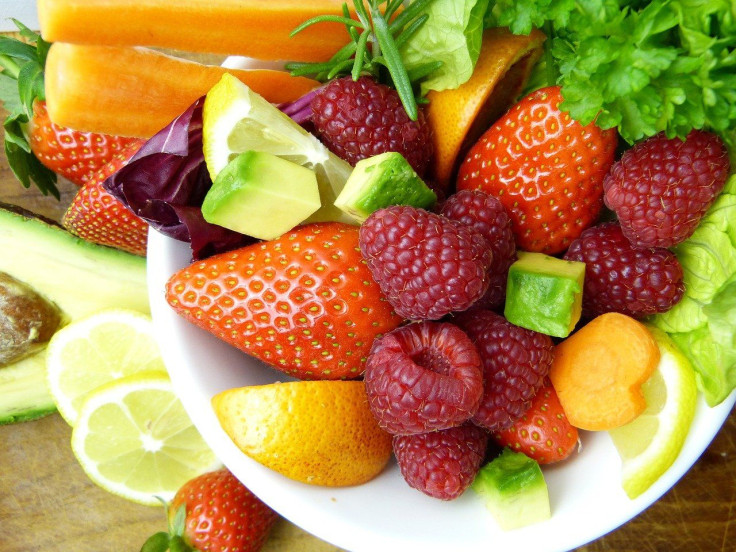Schoolchildren With Higher Fruit And Vegetable Intake Have Better Mental Well-Being: Study
KEY POINTS
- Researchers looked at the association between nutrition and mental well-being
- The study involved about 9,000 schoolchildren in Norfolk
- They found associations between the type of breakfast children eat and well-being
How do children's diets affect their well-being? Eating more fruits and vegetables contributes to their mental well-being, a team of researchers has found.
Poor mental well-being is a "major issue" among young people, the researchers of a new study, published in the journal BMJ Nutrition, Prevention & Health, said. What's more, it can have "long-term negative consequences."
"Well-being can be defined as 'the state of being or doing well in life,'" the researchers wrote. "Mental well-being, a term which is often used interchangeably with 'positive mental health,' refers to 'a state of well-being in which the individual realizes his or her own abilities, can cope with the normal stresses of life, can work productively and fruitfully, and is able to make a contribution to his or her community.'"
For their study, the researchers looked at data from 7,570 secondary school and 1,253 primary schoolchildren who were in the Norfolk Children and Young People Health and Well-being Survey to look at possible associations between dietary choices and mental well-being among schoolchildren. The children in the study self-reported their dietary choices and also took "age-appropriate" mental well-being tests, the University of East Anglia (UEA) noted in a news release. The tests covered their "cheerfulness, relaxation, and having good interpersonal relationships."
"While the links between nutrition and physical health are well understood, until now, not much has been known about whether nutrition plays a part in children's emotional well-being," study lead researcher, Prof. Ailsa Welch of UEA's Norwich Medical School, said in the news release. "So, we set out to investigate the association between dietary choices and mental well-being among schoolchildren."
The researchers found that higher fruit and vegetable intake was "significantly" associated with better well-being in both primary school and secondary schoolchildren. Those who consumed five or more servings of fruit and vegetables had the highest scores for mental well-being, UEA noted.
"The difference in mental well-being between children who consumed the most fruits and vegetables compared with the lowest was of a similar scale to those children experiencing daily, or almost daily, arguing or violence at home," the researchers wrote.
The researchers also looked at the type of breakfast and lunch consumed by the primary and secondary schoolchildren and found that it was "significantly associated with well-being." For instance, in a class with 30 students, four had nothing to eat or drink before morning classes, while three had nothing to eat before afternoon classes.
"Children who ate a traditional breakfast experienced better well-being than those who only had a snack or drink," study co-author, Dr. Richard Hayhoe, who is also from UEA's Norwich Medical School, said in the news release. "But secondary schoolchildren who drank energy drinks for breakfast had particularly low mental well-being scores, even lower than for those children consuming no breakfast at all."
According to the researchers, the associations between nutrition and mental well-being are already apparent even with the younger children, "which is a concern."
"As a potentially modifiable factor at an individual and societal level, nutrition represents an important public health target for strategies to address childhood mental well-being," Prof. Welch said. "Public health strategies and school policies should be developed to ensure that good quality nutrition is available to all children both before and during school in order to optimize mental well-being and empower children to fulfill their full potential."

© Copyright IBTimes 2025. All rights reserved.






















